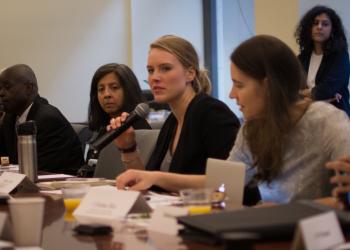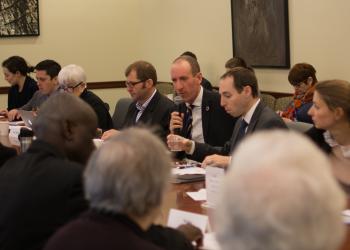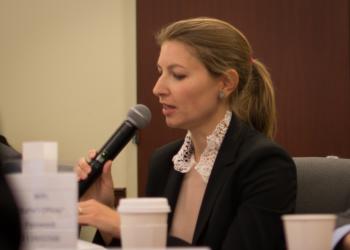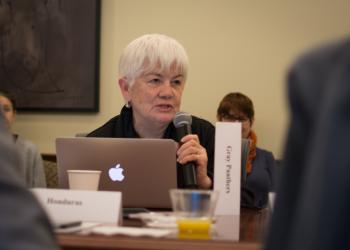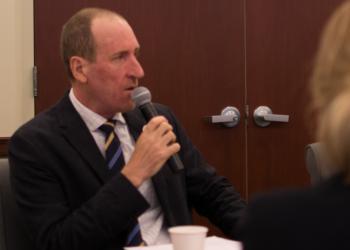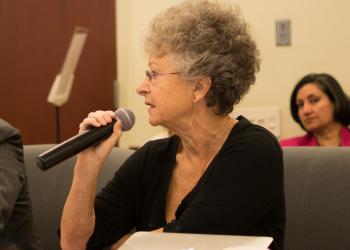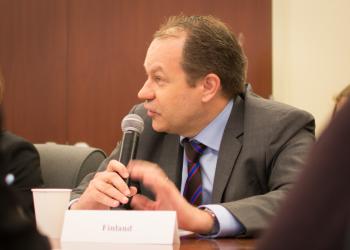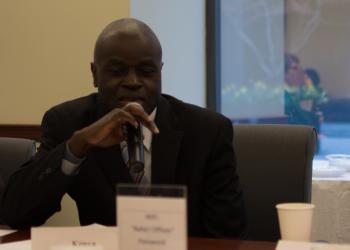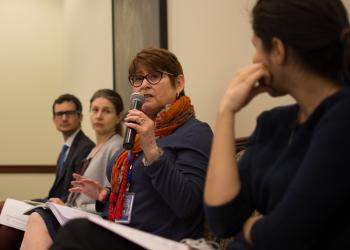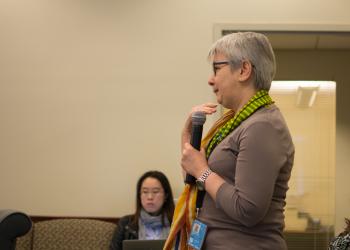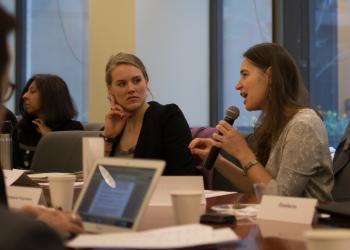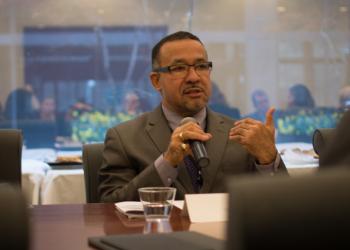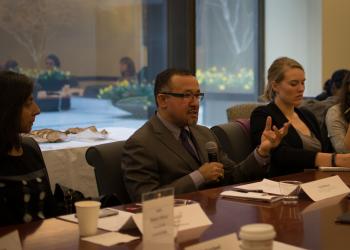Learning about thematic reviews at the HLPF
The High-level Political Forum (HLPF) is the central platform for follow-up and review of the 2030 Agenda for Sustainable Development and the Sustainable Development Goals.
Each year, the HLPF plans to review a set list of themes of the Agenda. In July, for example, the HLPF will look at poverty, food security, gender equality and oceans, among other things.
The process is new, and all parties – Member States, UN Agencies, and Civil Society – are learning how to approach these thematic reviews.
To assist in that process of learning, a breakfast meeting at the offices of Baha’i International Community (BIC) recently sought to consider: what is the role of thematic reviews?
Held 13 April 2017, and organized by the BIC, International Movement ATD Fourth World and Regions Refocus, the breakfast brought together diplomats, UN officials and representatives of civil society. It was the 37th such informal breakfast.
Opening remarks were delivered by Mr. Neil Pierre, Chief of the Policy and Coordination Branch; Office for ECOSOC Support and Coordination (UN DESA), and Mr. Friedrich Soltau, Sustainable Development Officer; Branch Division for Sustainable Development (UN DESA).
A robust discussion emphasized the challenges the UN faces in deepening its assessment of specific targets of the sustainable development goals. The current model of the ECOSOC system was evaluated, and it was noted that the entire system is under review.
Questions arose regarding the role of the UN Secretariat and where support can strengthen a more politically meaningful forum. In terms of the engagement of civil society, some points that were addressed pertained to the role of civil society in its various capacities. For many organizations – especially those at the grassroots level – a particular emphasis is needed to build on success in a collaborative spirit at the national level.
Gaps between inputs and outcomes to the HLPF were also explored.
In exchanging ideas pertaining to economics, there was an overwhelming consensus that the HLFP must address those structural and systemic issues that cause people to be left behind. There was also agreement on identifying both the groups that are left furthest behind as well as the challenges and successes are seen as those groups are reached.
For more information, the notes from the program can be found here.
